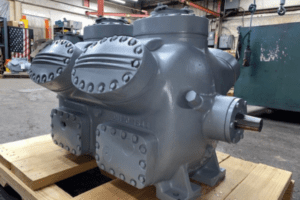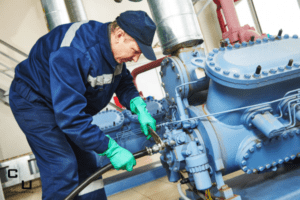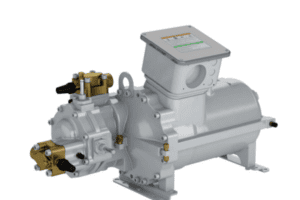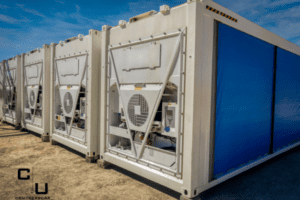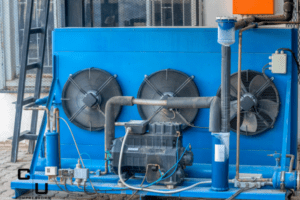New energy efficiency standards for air conditioners are coming, and you may be affected.
Recently, the federal government has been targeting HVAC systems as a means of improving energy efficiency and reducing pollution. On January 1, 2023, new standards were enacted that have sweeping repercussions. These standards affect both residential and commercial HVAC systems.
What to Know About New HVAC Efficiency Standards
The federal Department of Energy made its most recent changes to air conditioner energy efficiency laws back in 2015. Usually, laws that impact major building systems such as the HVAC have a “lag time” during which the industries affected know about the law and have time to prepare, but the timeline is much shorter in this case.
Air conditioners and heat pumps are both affected by the new standards. Manufacturers will need to make the new technology available and stop selling units that meet older standards. You are not required to replace your existing air conditioners or heat pumps but may be limited in changes you can make to old equipment.
Special Rules Apply to the Southeast and Southwest
It’s no surprise at this point that the southern United States has faced seriously sweltering temperatures over the last few years. In fact, it’s not out of the ordinary for summers to break heat records nearly every year. This makes a tremendous difference in energy use, and the new rules address the issue directly.
If you’re in the Southeast or Southwest – ranging from California across to Florida – then all installation of new air conditioning systems must meet the new standards. You cannot install a system meeting older requirements even if the materials are available to do so. This can be a challenge for contractors.
The indoor and outdoor units of the HVAC system must be paired to achieve the system goals, but they can be installed at different stages of construction. As a result, HVAC contractors need to be especially cautious to be sure that they have the right resources available at every phase of a new build-out.
If you are subject to the special installation deadline in the Southeast and Southwest, be aware that it applies only to air conditioning systems. Heat pumps are not affected. Of course, if temperatures continue to rise, a heat pump may be the last thing you need to install at your facility!
Highlights of the New Efficiency Standards
The new efficiency standards are complex and affect different equipment pieces in different ways based in part on the regional location of the construction. The biggest change will be to the metrics used to measure system efficiency. SEER and EER will be phased out in favor of SEER2 and EER2.
All HVAC systems must now be certified under the new SEER2 standard. New testing procedures and limited sell-through opportunities mean this may be a particularly challenging conversion at first. Still, it won’t be long before SEER2 and EER2 are business are usual.
Here are just a few of the key highlights to be aware of:
1. Split System Air Conditioners
Split system air conditioners will see some of the most complicated and sweeping changes. Their minimum efficiency standards will be based on a combination of system capacity and geographical region. To give examples, the North Region will rise from 13.0 SEER to 13.4 SEER2.
That is equivalent to an increase of 1 SEER unit, from 13.0 SEER to 14.0 SEER. The highest efficiency standards will apply in the South Region, where air conditioners with a total capacity under 45 kBtuh will need to reach a rating equivalent to 15 SEER (that is, 14.3 SEER2). That will also be the case in the Southwest.
2. Split System and Single Package Heat Pumps
Unlike split system air conditioners, split system heat pumps will see a uniform increase in efficiency demands all across the country. The outgoing 14 SEER standard is replaced with an equivalent 15 SEER standard, or 14.3 SEER2. Single package heat pumps will not see any change in standard other than converting to new metrics.
The New Energy Efficiency Standards Are In – Are You Meeting Them?
The existing stock of single and two-stage split system AC units are still available for purchase and may be used if they meet the new standards. Since all such units are tagged using the now outdated SEER metrics, it is up to you to ensure that the new equipment is suitable after SEER2 conversion.
Many facilities will need to make major changes to their equipment, not just in the Southeast and Southwest. If you find yourself in need of a replacement commercial compressor to meet the new targets, a remanufactured commercial compressor may be your best bet. The speed, discounted price, and efficiency of remanufactured compressors help you adapt to regulatory changes, no matter how strict.


